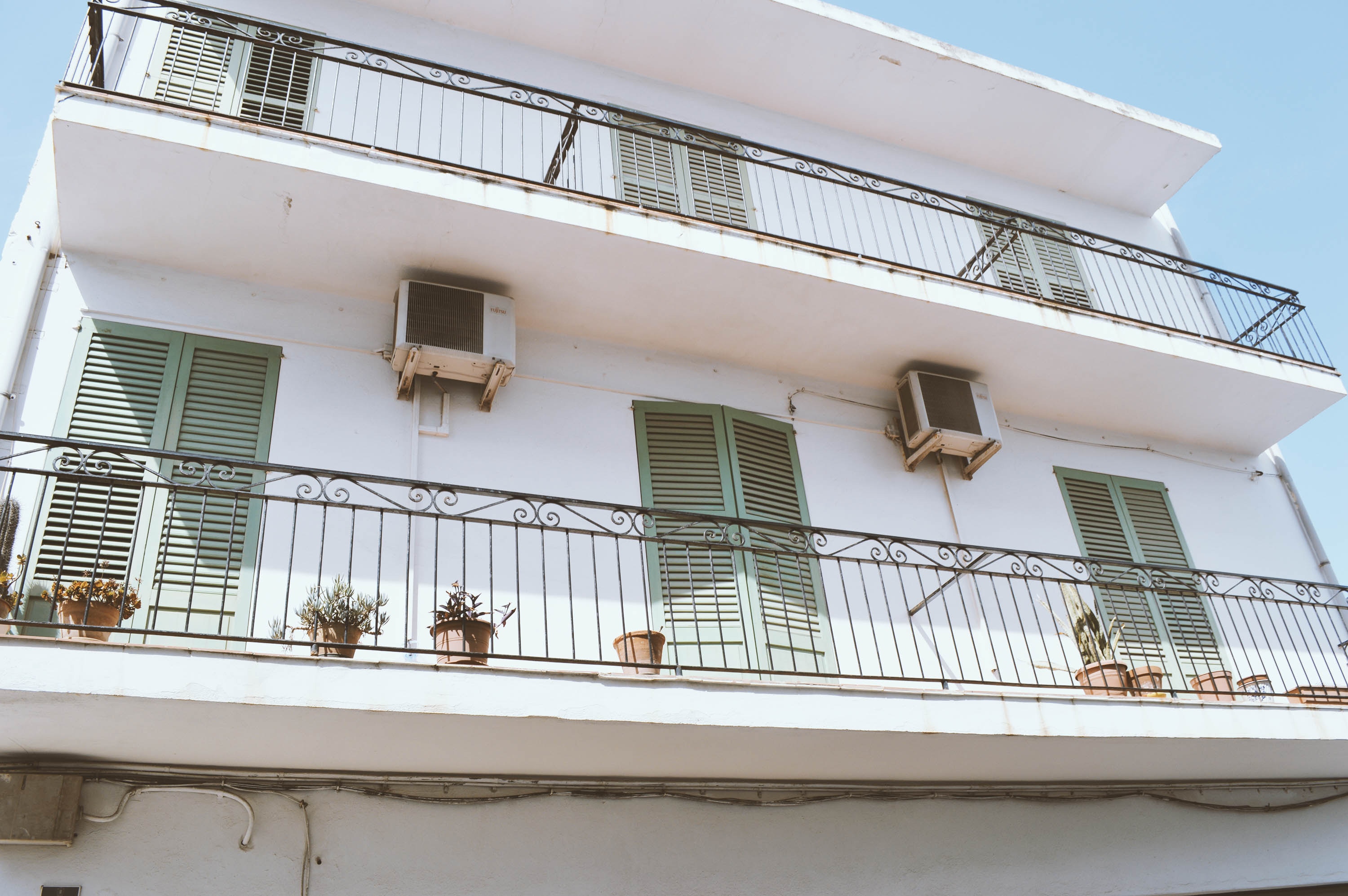I used to be That Guy.
The one who was always at work, who never had a day off (until ironically, I started to get sick, and then would have to be signed off for weeks at a time by my GP, to stop me from going back to work before I was better).
The one who’d get cross letters from HR telling me I ~had~ to use all of my holiday by year-end, and that no, they couldn’t continue to carry over my 24923058098 days of accumulated holiday. Oh.
{Which would often result in me taking three consecutive weeks off in Decembers but working remotely from home anyway.}
Aside from the whole burning out thing (you can read about that here), I would find that I stopped being able to see the wood for the trees. I’d dry up creatively – and often, I’d be in a job I’d actually ~secured~ through my creative thinking, enthusiasm and endless stream of ideas.
Yet I’d gradually become this weird work hermit, clamped to my desk, refusing to make any sudden moves.
To cut a very long-winded story short, I think much of the motivation behind this came from insecurity and not being confident in my own ability.
That if I left the office, someone would come in and do my job better and I’d be sacked.
Probably also an element of perfectionism and control, of safe-guarding things from going wrong, in a ‘if you want a job doing right, do it yourself’ sorta way.
But, as the saying goes:
Being dead is bad for business.
Which, although a little bit dramatic, is very true, actually.
The more relaxed you are, the more freely your creativity flows. Travelling and going somewhere new, broadens your horizons.
Besides, putting a little distance between yourself and your daily routine, helps you to see things from a different perspective.
There is no better way to hit refresh on your output like logging off.
Take, for example, your tech. If your iPhone froze, or was doing that weird overheating thing, or ran out of battery, you’d switch it off, plug it in and let it recharge away from view. Right?
Bearing in mind, you’re not a mother-fuckin’ machine and an actual human being, why is it so hard to apply the same logic to yourself?!
As a former vacy-aavoider, I can totally relate, but I am 99.9% sure my burn-out could have, in part, been avoided by taking regular breaks, learning to let go, stressing less and giving my anxious mind some down-time, outside of the hectic office environment.
As someone who has worked in plenty of different office-based roles, here are my top tips for switching off when you jet off…


1. Have a handover
Sounds extremely obvious this, but plan it in properly. A few weeks before you go away, sit down with your line manager/boss and work out what cover you’ll need while you’re off, and who can step in to do this (and how much time it’s likely to take up).
Have a hand over with anyone covering your work a few days before you go away, to build in a buffer for any last-minute questions which might crop up.
Circulate a handover document that your wider team can refer to for points of contact, and where you’re at with projects. Share passwords – for your work computer, or company social accounts, etc – with someone trustworthy, and let people know who that person is on your handover doc.
Spending some time on getting this doc up-to-date will allow you to fully relax while you’re away, so make time in your schedule to actually do it.
2. Out of office message
Another obvious one, but anticipating potential messages and managing senders’ expectations can ease the pressure massively.
Let people know the date you’re back in the office, whether or not you’ll be checking/have access to emails while you’re away (I mean, I hope NOT, but still…), who they should contact if their query is urgent or where they can find out further information on FAQs (e.g. company website, etc).
Give people your phone number if that’s really appropriate, but clearly state if they should text or call (and the best local hours to do so, particularly if you’re in a different time zone).
Advise if they should resend their email after your return date, or if you’ll respond to all messages when you’re back.
3. Folders are your friends
I used to shy away from setting up things I deemed to be overly, unnecessarily geeky like this, but you can set up inbox ‘rules’ so messages from a certain important sender go straight into a special folder.
So if you don’t want to be sifting through your work email while you’re away but need to keep an eye on messages from say, your boss, or a key client, you can get their messages directed into one folder for specifically checking without trawling through (and getting distracted by) trillions of other emails.
4. Remove your work email from your devices
If possible, for the time you’re away, consider un-syncing (is that even a word?) your work email from your iPhone/iPad/iWhatever, so you won’t be tempted to have a quick scroll through your inbox while you’re uploading a sunset picture to Insta.
If needs be, you can still log onto work emails remotely, on a laptop or desktop, but because it’s clunkier and more faff, you’ll be less tempted to.
5. Make photo albums a thing
When I was growing up, after every holiday, I’d get my REAL FILM photos developed at Boots, and then put the useable ones (where my stupid thumb wasn’t obscuring the shot / no flash) into a photo album. I’ve now got an archive of albums per holiday destination that I love leafing through.
For my next jaunt, I’m going to bring a throw-away camera with me, and while I might not do away with digital photography completely, I’d at least like to have analogue imagery alongside my Insta Grid.


6. Post pics out of sync
I tend to give myself a few days completely logged off when I first arrive at my destination, to properly unwind, relax and live in the moment. I’ll still take snaps, but I don’t tend to upload until the second or third day, so I’m essentially posting out of sync, but so what?!
From a practical POV, this is also a good tactic to avoid broadcasting your exact departure/return dates because BURGLARS.
In addition, I’ll only post at a set time, say in the evening before dinner or just before bed. This way, I make the most of my time away, but I still get to share my experience on social platforms – it just means you get to enjoy more of your holiday time and the people you’re with.
You can also continue to post pics when you’re back; people don’t need to know your exact whereabouts all the time, or you don’t need to be in the place the pic depicts, SO COOL YOUR ROCKETS.
7. Extend airplane mode
You know how ideal it is to not receive any notifications while flying? Well, I try and extend that joyousness by keeping my notifications switched off while I’m away, specifically social ones.
I mean, keen readers (hi there) will know this is something I do all the time now anyway, but this was a habit that I started one holiday and have kept up ever since as it’s soooo bloody liberating.
8. Bring a notebook
As mentioned above, I find my creativity soars while I’m away, and I have the best ideas. Make sure you note them down while they’re fresh in your mind!
Bring a notebook and pen away with you and allow your innermost ramblings to spill out on the blank pages. You might be surprised at what comes tumbling out.
While you enjoy being the most relaxed, laid-back version of you, you’ll be inspired with ways you can carry this through on your return. Can you go swimming? Start yoga? Pick up a paint brush again? How can you give your mind a holiday more regularly than once a year in the Algarve?
9. Give yourself an extra day when you’re back.
I don’t mean rocking up to the office in a Hawaiian shirt, sipping Piña Coladas at your desk, but if you can (once your colleagues have admired your tan and you’ve told everyone that there’s funny-sounding sweet treats from your far-flung destination in the kitchen), perhaps keep your out of office message on for an extra day, while you catch up on emails (you could amend the auto-response to reflect this), and maybe hide away in a meeting room while you do so.
Have a catch-up meeting with your boss, and anyone covering for you. Find out the status of things directly, instead of trawling through emails and replying out of sync to matters that might have already been dealt with!
Make sure you take your full lunch break when you’re back, leave the office on time, and don’t check or reply to work emails outside of office hours. Work on one of those amazing creative ideas you came up with while you were away.
10. Book your next break!
Nothing eases the holiday blues better than having another one to look forward to (I used to be so bad at booking holidays, I never got to experience this).
Having a couple of breaks booked in throughout the year breaks up the mundanity of the working routine (and helps you plan your cover more efficiently).
And also helps to avoid getting angry emails about your outstanding PTO from HR…
